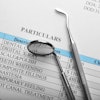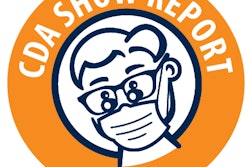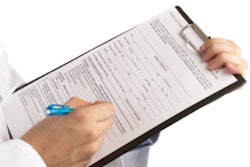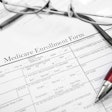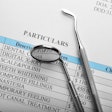
ICD-10, the 10th revision of the International Classification of Diseases, is the system currently used in the U.S. for coding all diagnoses and symptoms, as well as procedures done in hospitals. Though it is primarily used and required in medical practices and hospitals, ICD-10 can potentially still be required for procedures done in a dental office if those procedures are billed on a medical claim form or sent to certain insurance payors.
 Tiffany Yanagida is a certified meaningful use administrator for MacPractice. Image courtesy of MacPractice.
Tiffany Yanagida is a certified meaningful use administrator for MacPractice. Image courtesy of MacPractice.Though ICD-10 was mandated by the Centers for Medicare and Medicaid Services, Medicare and Medicaid are not the only insurance payors requiring its use on their claims. ICD-10 is an industry-wide and national standard change, which means that even if your office does not bill procedures to Medicare or Medicaid, it could still directly apply to you.
As of October 1, 2015, every medical insurance payor in the U.S. was federally mandated to transition from requiring ICD-9 codes to ICD-10 codes for diagnoses included on claims. Medical claims are paid based on medical necessity, and a practice may not receive full payment or perhaps even no payment at all without the proper diagnosis code(s).
The required use of ICD-10 does exclude a few insurance payors that have yet to update their claims processing systems and have approved these delays with the government. Workers' compensation is the primary type of insurance payor that has yet to make the transition from ICD-9 to ICD-10 codes, but a few others are out there. These are on a case-by-case basis, so providers will want to confirm with the individual insurance company if they happen to get a rejected claim.
In addition to the few delays, the four states of California, Maryland, Montana, and Louisiana have Medicaid insurance payors with a government approved "crossover" method of claims processing. Providers are still required to send claims with ICD-10 codes, but the payors translate those codes back to ICD-9 on their end before the claims are fully processed and paid.
“As a general rule, if you have never used ICD-9 or medical claim forms in your dental practice, ICD-10 most likely does not and will not apply to you.”
Procedures that require ICD-10 diagnosis codes are not done in every general dentistry office. Below are a few examples of procedures that might be performed in a dental office setting, which would require a medical claim form and/or the use of ICD-10 codes:
- Temporomandibular joint (TMJ) procedures, such as TMJ repair of a joint membrane or cutting of a muscle
- Oral surgery procedures, such as a sialodochoplasty or repositioning of teeth
- Maxillofacial surgery procedures, such as a maxillary sinusotomy or repair of maxillofacial defects
- Oral sleep apnea appliance therapy
In addition to medical claims requiring ICD-10 codes, several state Medicaid programs require the use of diagnosis codes along with procedure codes submitted on dental claims. According to the ADA, Medicaid programs in Arizona, Iowa, Maine, Michigan, and Nevada currently have some sort of diagnosis code requirements for dental claims. These vary by state, so providers will again want to confirm exactly what is required with each insurance program.
As a general rule, if you have never used ICD-9 or medical claim forms in your dental practice, ICD-10 most likely does not and will not apply to you. However, if you perform any procedures that are billed out on medical claims or submit dental claims to any of the above-mentioned state Medicaid insurance payors, this transition will affect how you code your diagnoses -- and whether your claims are accepted and paid by insurance.
Tiffany Yanagida is a certified meaningful use administrator, certified Physician Quality Reporting System (PQRS) healthcare professional, and the head of the meaningful use support department for MacPractice.
The comments and observations expressed herein do not necessarily reflect the opinions of DrBicuspid.com, nor should they be construed as an endorsement or admonishment of any particular idea, vendor, or organization.

